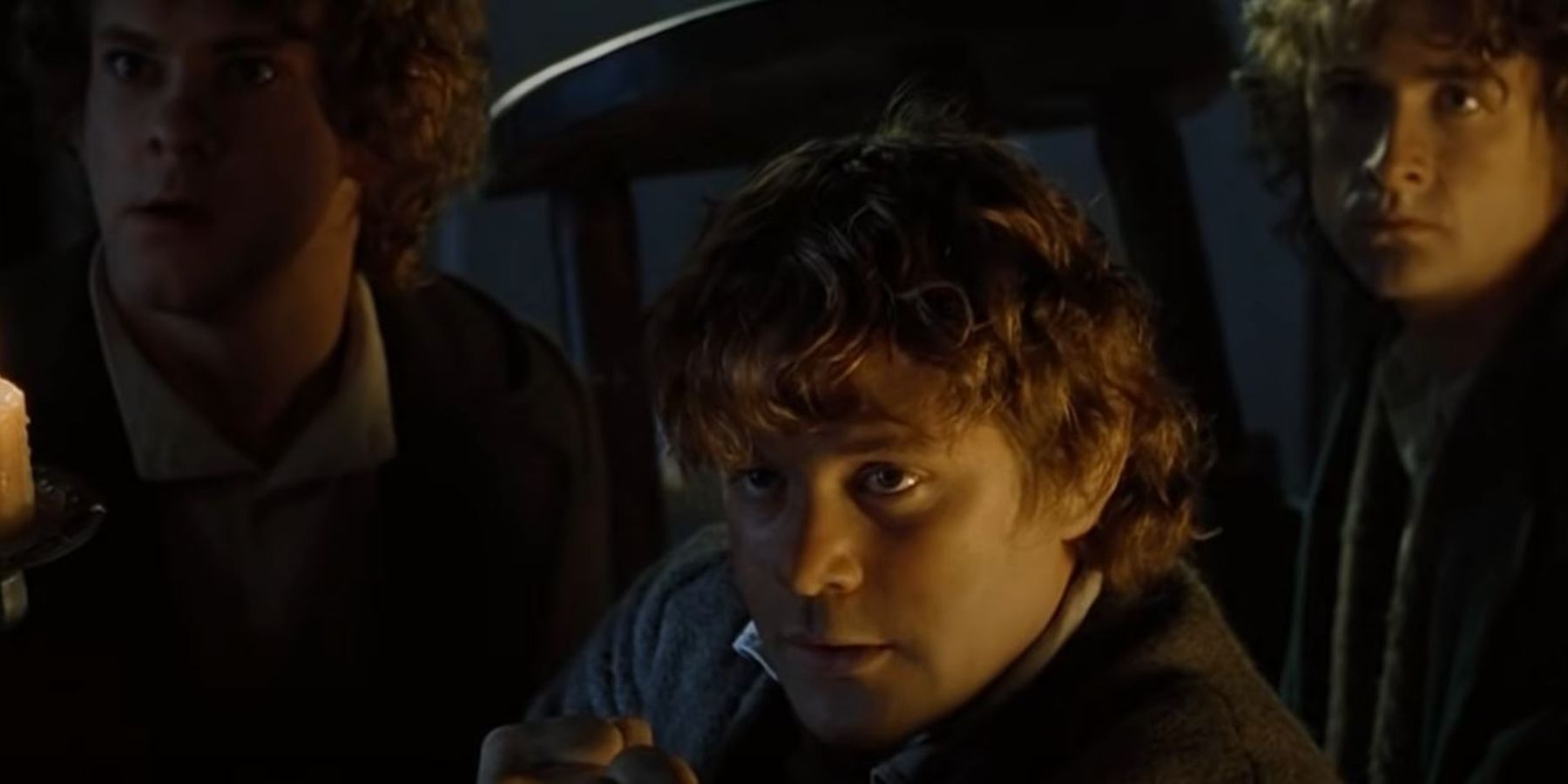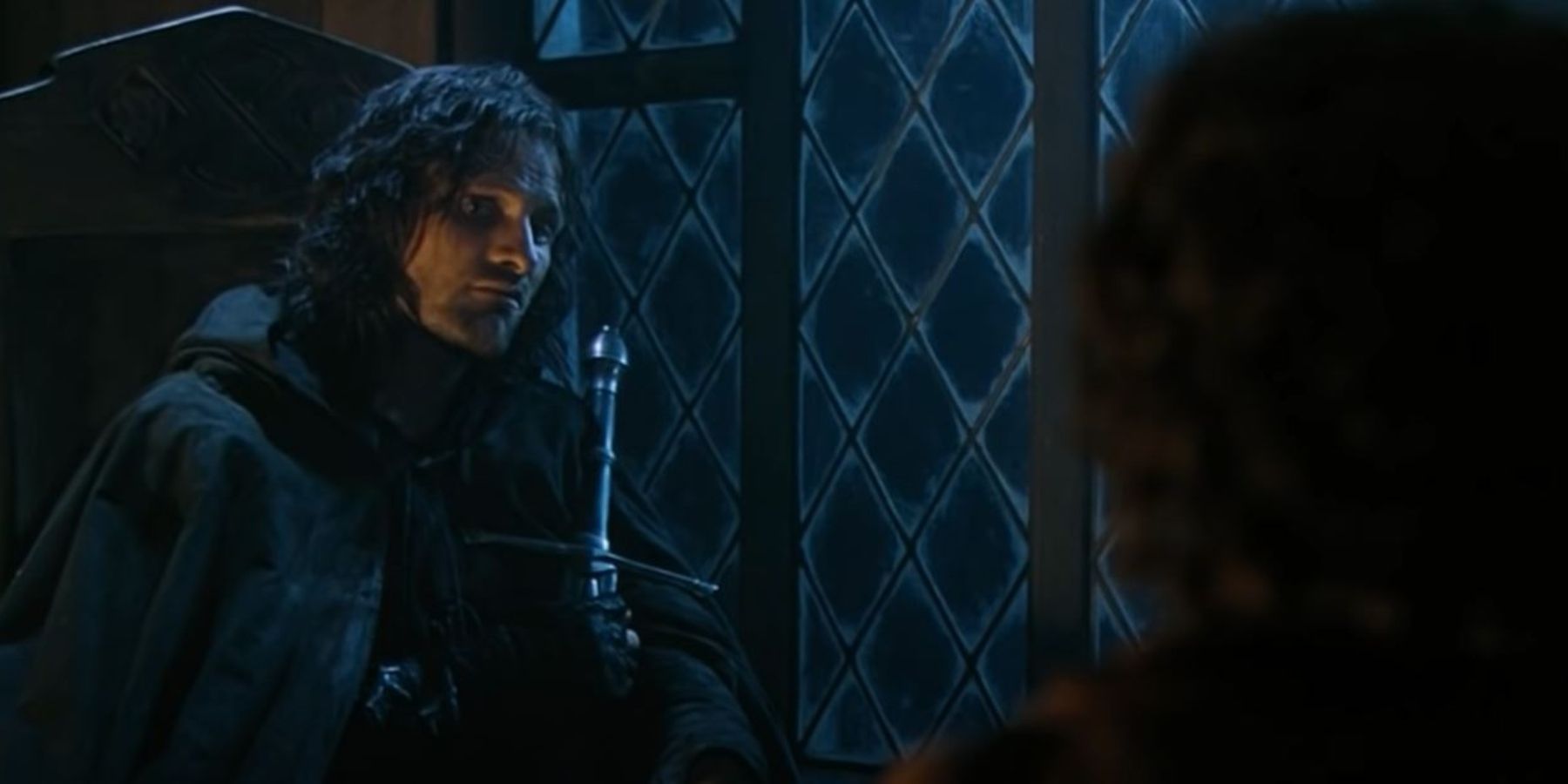Learning how to tell their friends from their enemies is one of the hardest tasks that the hobbits of the Lord of the Rings trilogy must face in their entire quest to destroy the ring of power in Mount Doom. This is mostly because they are an overly trusting kind of creature, and rarely have reason to suspect one another in The Shire. At home, their lives are quaint and simple. The biggest transgression that a so-called enemy might make is perhaps treading on a neighbor's flower-bed, or taking more than his fair share of the food and pipe-weed.
However, identifying enemies is a skill that they must learn very quickly in their journey. In the first few days after leaving the Shire, they have already been chased by ring-wraiths, nearly swallowed by Old Man Willow in the Old Forest, captured by the hideous beings in the Barrow-downs, and spied on by the traitors who lie in wait for them at the Prancing Pony. Here, they also meet Strider, and are at once warned by Bar Man Butterbur that he is a ranger, a wild and unruly person not to be trusted. Sam, who has better instincts than the others, is immediately defensive, judging Strider by his worn and haggard look.
In Peter Jackson’s film adaptations of the trilogy, Merry is also distrustful as they have no choice but to follow Aragorn off into the wild, having received no word from Gandalf about where they were supposed to go, or what they should do next. Of course, none of the hobbits are very happy about this, but they must go along with it. Meanwhile, Aragorn does his best to earn their trust in small ways along the journey, including giving apples to Pippin for second breakfast, guiding them on safe and little-known roots to avoid the ring wraiths, and protecting the hobbits when they are attacked on Weathertop. However, in the books, the group are a bit less blind in their trust of him. Although they are fearful at first, there is a letter that was left for them by Gandalf, which contains some details about Aragorn, and tells them that he is an old friend of Gandalf’s and that they will be safe with him.
After reading the letter, Frodo reveals that he believed, or at least wanted to believe, that Aragorn was a friend and not an agent of the enemy, saying: “I think one of his spies would – well, seem fairer and feel fouler, if you understand.” Aragorn then responds: “I see! I look foul and feel fair, Is that it? All that is gold does not glitter, not all who wander are lost.” This, of course, is a perfect rendition of the common phrase "don’t judge a book by its cover." It goes to show that just because Aragorn looks scruffy and unruly, doesn’t mean he cannot be trusted. Just because he doesn’t glitter on the outside (at least, not yet) doesn’t mean that he doesn’t have a heart of golden love and loyalty within. This is a very important lesson for the hobbits to learn, because the enemies they face come in many different forms throughout their journey. They will encounter beings that range from hideous orcs, who very clearly look evil, to their guide Gollum, who looks like he may once have been one of them, but is perfectly capable of strangling them in their sleep.
This idea of "looking fairer but feeling fouler" stems from the idea that the enemy is often deceiving. Often, they will try to trick others into believing that they are good and kind, but will have malicious intentions below the surface. This is where the "feel fouler" comes in, because the hobbits' feelings and instincts are their greatest assets. For example, Frodo is able to feel that Boromir will try to take the ring from him before it happens. He also senses that Faramir isn’t like his brother, and will let them go on their journey, despite the ring’s temptation. Sam is able to feel that Gollum means to do them harm and is only after the ring, even when Frodo wants to trust him. These instincts keep them alive.
Many believe that this sentiment comes from the dark history of the rings of power, and how, in order to trick the other races into accepting the rings that he had made, their maker disguised himself as a beautiful elf, with all the appearances of a gracious and generous gift-giver. But underneath, he had cruel and terrible desires for power, and only Celebrimbor was able to recognize this, and stop the elves from accepting the duplicitous gifts, before it was too late. Now, that tale is reflected in the hobbits' keen perception, saving the world from trickery a second time.



